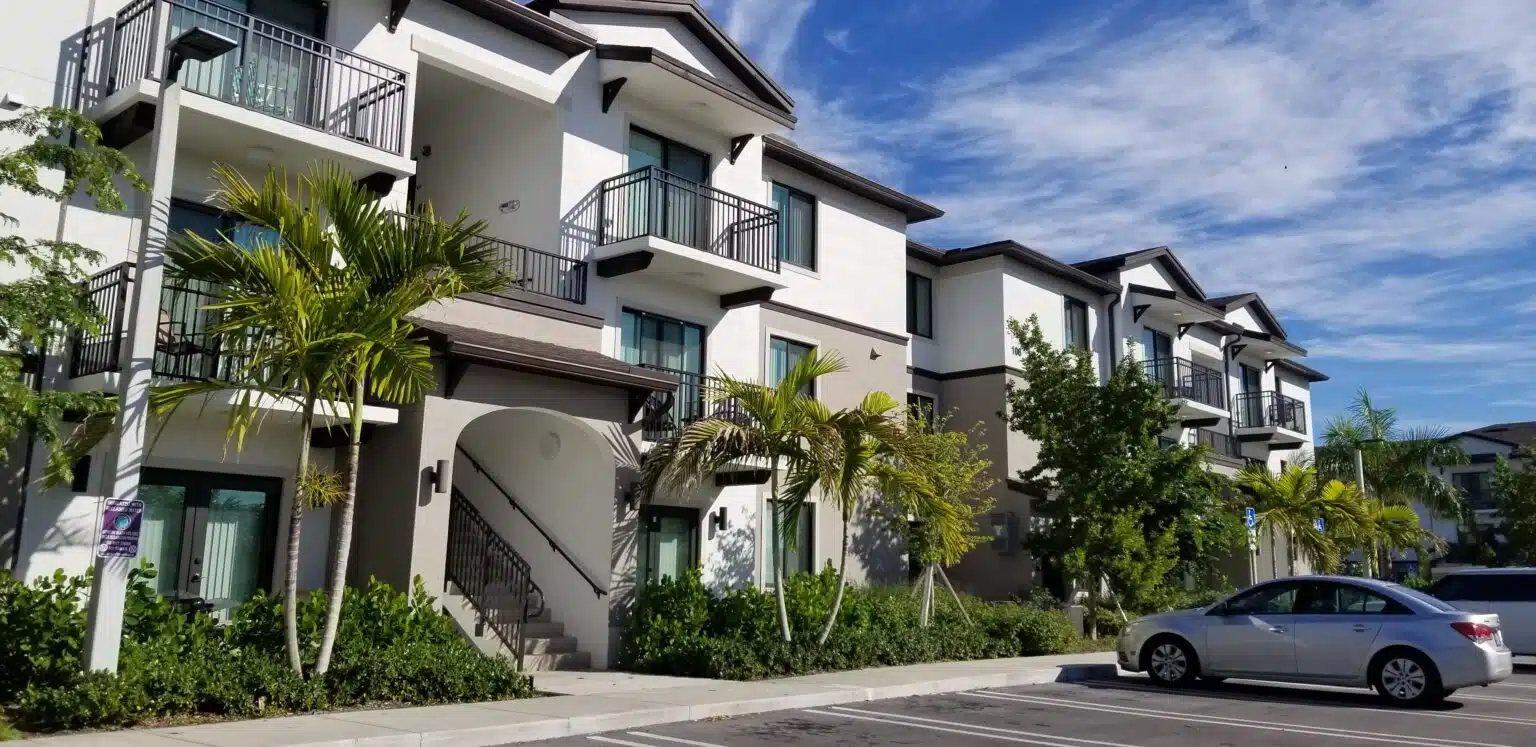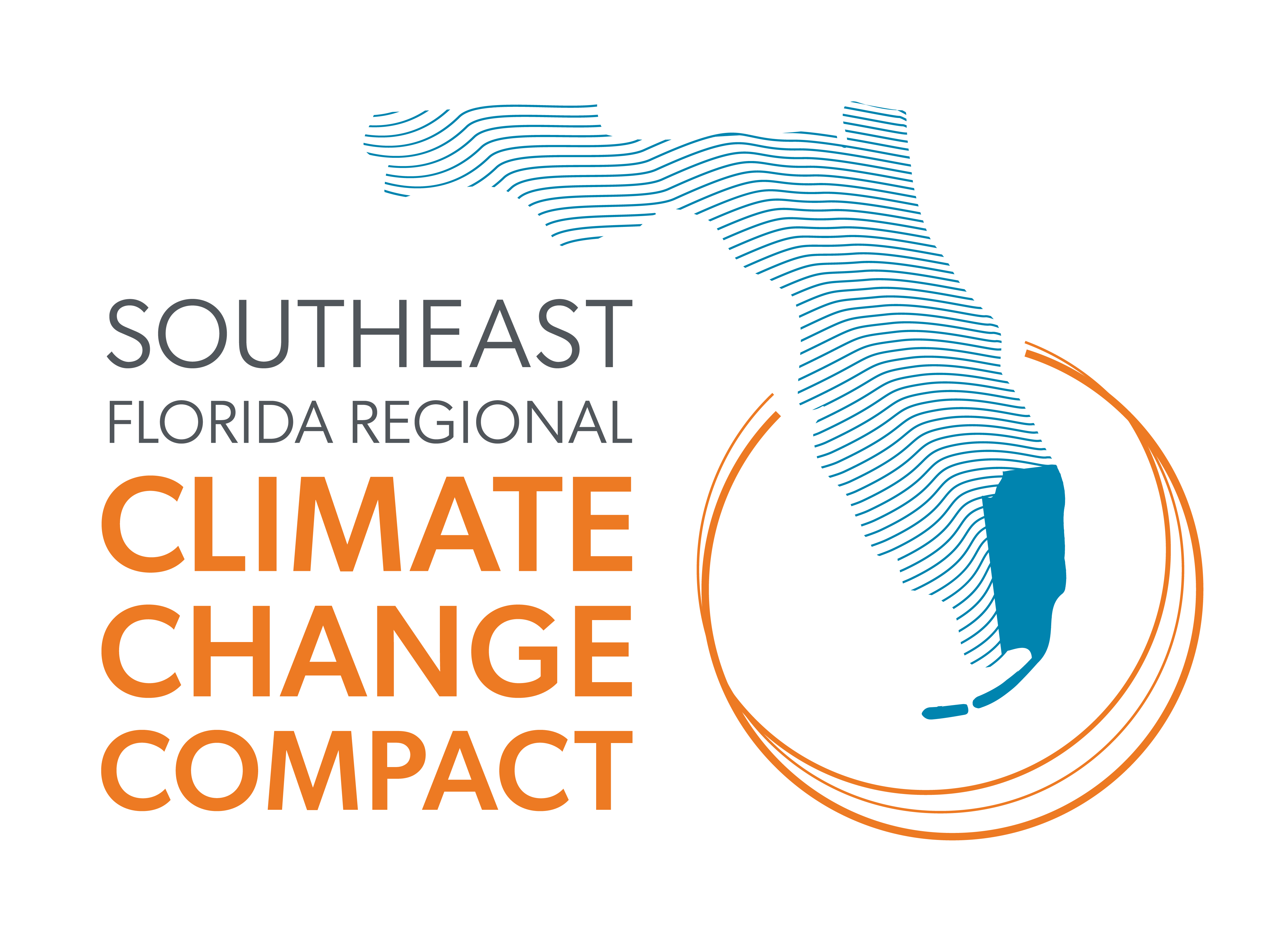

Events
Compact Events
RCAP Implementation Workshop: Climate-Resilient Affordable Housing
June 28, 2023 @ 1:00 pm - 4:15 pm
Free
Southeast Florida faces two considerable and interconnected challenges to the region’s shared prosperity, resilience, safety, and economic growth—climate change and affordable housing. The region is often cited as one of the most at-risk metro areas globally due to a changing climate. At the same time, according to 2020 data from the Shimberg Center for Housing Studies at the University of Florida, more than 750,000 low-income people (defined as having 80% of Area Median Income or lower) in the four-county region were paying more than 30% of their income in housing costs, which is considered unaffordable.
Climate change places increasing pressure on already limited affordable housing stock, amplifying housing instability and exacerbating affordability challenges. Increasingly severe and frequent storms and natural disasters damage and destroy existing housing, leading to additional shortages and substandard conditions. Much of the existing affordable housing stock is not equipped to deal with increasingly severe climate shocks. Improving the resilience of and reducing emissions resulting from housing can increase building and retrofit costs, further compounding affordability issues. However, these improvements can reduce energy burden in the long-run and ensure efficient, safe, and adequate housing, which must be attained if we are to realize the goal of a truly resilient community.
At the same time, the housing crisis can undermine climate and resilience goals. The dearth of affordable housing exacerbates sprawl and may also result in the development of affordable units in areas that are lower-value and higher-risk. Urban sprawl accelerates climate change through less dense, car-dependent, energy-intensive developments that frequently destroy natural habitat required for carbon sequestration and biodiversity.
This workshop will explore the intersection of these dual crises and provide insights toward integrated, holistic strategies that address both challenges simultaneously and in ways that meet the needs of the most at-risk households.
Workshop Recording
View/Download Agenda
View/Download Speaker Bios
Objectives for this Workshop include understanding of:
- Intra-agency collaboration and integration of housing and resilience objectives
- Integrating affordable housing as a critical asset within climate change vulnerability assessments
- Tools for assessing hazards to affordable housing properties
- Strategies for multi-family building resilience
- Available funding and financing to advance resilience in affordable housing
- Engaging residents to increase property resilience
- Community land trusts as a tool for resilient affordable housing development
This workshop will advance the following recommendations of the Southeast Florida Regional Climate Compact Regional Climate Action Plan’s (RCAP 3.0):
- EQ-7.1 Assess local social vulnerabilities in relation to climate change impacts and the infrastructure services, infrastructure design, land use (including housing) and other built environment components needed to reduce those vulnerabilities over time.
- EQ-7.2 Prioritize investments that promote economic mobility, health and safety while addressing climate change causes and impacts
- ER – 5 Improve understanding of the compounding role of climate change and sea level rise in the affordable housing crisis in the region. Identify opportunities for integrated solutions that center equity, prevent displacement and bolster economic development.
- RR 14.2 Create programs to address the specific needs of frontline populations in order to reduce risks to these communities during an emergency and aid in their equitable recovery post-disaster. Provide support for pre-development activities and pre-disaster mitigation strategies that will help affordable housing owners reduce their material risk to climate hazards.
- ST – 13 Advance equitable economic growth that integrates equity considerations, and increases and preserves affordable housing accessible to essential services in a manner that supports retention of current residents.
- ST-13.1 Incentivize the development of affordable housing near transit hubs accessible to essential services, including jobs, education, health care, recreation, shopping, and in locations that are less vulnerable to the impacts of climate change. Preserve existing affordable housing where appropriate.
Audience/Participant targets:
- Resilience/sustainability practitioners
- Housing/building departments
- Planning/zoning professionals
- Office of emergency management
- Community based organizations
- Community land trusts
- Affordable housing managers/owners/developers

Details
Please register for this event by clicking the link above. Then add to your calendar below.
